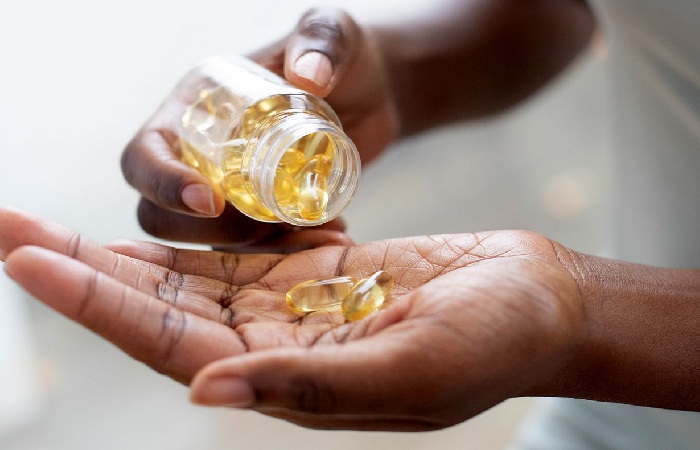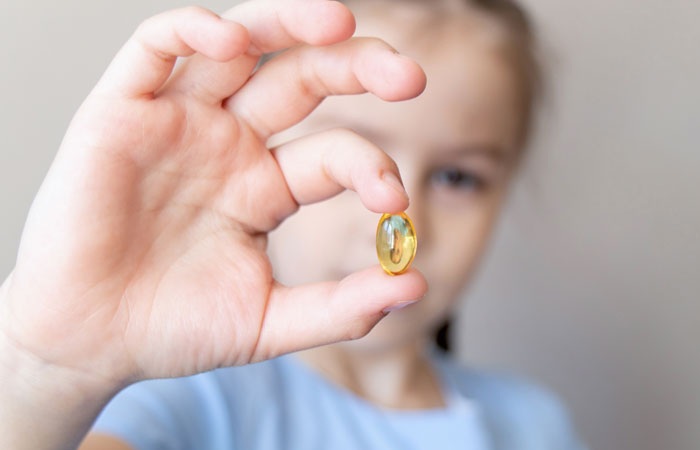Table of Contents
Introduction
vitamin D- It is a fat-soluble vitamin that plays a leading role in the creation of bones and teeth, as well as in the fascination of calcium at the intestinal level and in the operation of the nervous. Muscular, and immune systems. Therefore, it is also commonly referred to as calciferol. Vitamin D is obtained in three ways: through the skin through exposure to sunlight, from the diet, and supplements.
What is Vitamin D for?

Professor Victoria Arija, lecturer of preventive medicine and public health at the Rovira I Virgili University in Tarragona, comments on vit D as follows: “In our environment, deficiency of this vitamin is prevalent, and it is involved in the metabolism bone but is also associated with other tissues and systems.
Now, what are the consequences of vit D deficiency? “A deficient intake of vit D through diet or low sun exposure is related to cancer, cardiovascular and autoimmune diseases, diabetes and depression,” emphasizes Professor Arija.
Vitamin D performs beneficial bodily functions, such as those mentioned below.
Vital For Strengthening Bones
The body can only absorb best calcium, the chief element of bone, in the presence of vitamin D, making it an essential nutrient for strong bones and healthy bones.
Vitamin D supplements can be use to treat inherited bone disorders such as hypophosphatemia. Likewise, they treat adults with severe vitamin D deficiency, a pathology that causes loss of bone mineral content, muscle faintness, and osteocalcin.
Contributes to Good Cognitive Health

Scientific research has proven that having low vitamin D levels in the blood causes cognitive impairment. However, more studies are essential to determine the benefits of vitamin D supplementation in this regard.
Now, it is clear that due to its anti-inflammatory, antioxidant, and neuroprotective properties, calciferol helps brain cell activity.
Prevents Rickets in Children
This rare condition develops in vitamin D deficiency children because they don’t get enough calcium from their diet, causing their bones to become soft and bend. However, vitamin D supplements can stop or treat this problem if it already exists.
Involved in Important Body Processes
Calciferol regulates the levels of calcium and phosphorus in the blood and, at the same time, promotes the intestinal absorption of these from food and the reabsorption of calcium in the kidneys.
In another order of concepts, this vit is also complex in the immune system and muscle function processes.
Researchers stay to study the link between vit D deficiency and various medical conditions such as diabetes, breast, colon, prostate, and ovarian cancer, chronic fatigue, psoriasis, rheumatoid arthritis, and immune or mental illnesses.
How to Use Vitamin D?

You can obtain the benefits of vit D supplements with proper medical advice. In the market, they are usually create in the following performances:
capsules. Use to maintain the immune system’s proper functioning and calcium fixation.
Food Complements. In combination with folic acid and inositol, vit D is often use to recover fertility and ovulation and improve the regulation of the menstrual cycle.
Accessories for children. Vitamin D is necessary for average bone growth and development in children.
How Much is Vitamin D Needed?
The Spanish Society of Endocrinology and Nutrition recommends maintaining serum concentrations of 25OHD between 30 and 50 ng/ml (75-125 nmol/l) to take advantage of the benefits of vit D for health.
Based on data from different studies on vit D, a criterion for use depending on age has been established. The recommended amounts, in international units (IU), are:
Up to 12 months: 400 IU
Children between 1 and 13 ages: 600 IU
Adolescents between 14 and 18 ages old: 600 IU*
Adults 19 to 70 ages old: 600 IU
Adults over 71 years: 800 IU
However. People at high risk of vit D deficiency, such as celiacs, those taking medications that affect vit D metabolism. Older adults, and those with kidney failure may need more if a doctor determines.
Recommendations for the Use of Vitamin D

Without vit D. Bones become soft, thin, and brittle, opening the door to possible bone disease. Hence, a sufficient amount of vit D must be obtained by controlled sun exposure from food sources and, if necessary. Through vit D additions.
However. Abusing these supplements can be counterproductive and generate toxic effects such as deposits of this mineral in soft tissues such as sinews, heart, and lungs and an increased probability of kidney stones.
Interactions with other medications.
Possible interactions include the following:
Anticonvulsants. Anticonvulsants such as phenobarbital and phenytoin growth the breakdown of vit D and reduce calcium absorption.
Medications for psoriasis. Some drugs, such as calcipotriene (Dovonex, Sorilux), in combination with vitamin D, can increase the risk of too much calcium in the blood.
Steroids. These steroid medications. Such as prednisone, can decrease calcium absorption and interfere with the body’s processing of vit D.
Conclusion
it is good to obtain the necessary amounts of vit D by natural means, but if you need to take supplements. You should not do it on your own without first consulting a doctor or pharmacist. On the other hand, some medical studies advise that people who get enough vitamin D and calcium in their diets can stop osteoporosis and reduce cracks.
Related posts
Featured Posts
How AI Dubbing Is Changing the Game for YouTube Creators and Influencers
Today, the continuously innovating platform of a global audience that reaches from YouTube to creators and influencers has become their…
Exercises to Have the Best Six-Pack in Summer
Introduction Marking the abdomen area is the goal of true fitness lovers. And, is that this summer you can teach…


